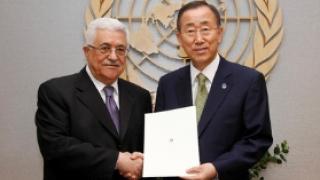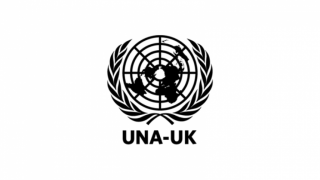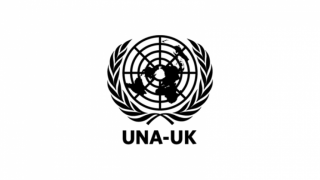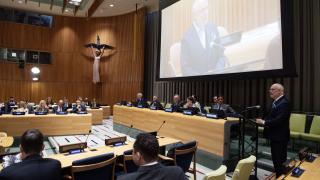
Palestine will become party to the International Criminal Court (ICC) on 1 April, the UN has confirmed. The membership opens a major legal avenue for Palestine to seek justice over alleged war crimes committed during clashes with Israel last summer, which left nearly 2,200 Palestinians and 70 Israelis dead.
UN Secretary-General Ban Ki-moon confirmed on 7 January that Palestinian President Mahmoud Abbas had signed the Rome Statute of the ICC, and has submitted documentation to join other international conventions.
Palestine’s accession to the ICC – which will be backdated to 13 June 2014 – allows the ICC to exercise jurisdiction over any war crimes and crimes against humanity committed on Palestinian territory. Describing its accession as a “peaceful option” to seek justice, the Palestinian Authority has confirmed that it will pursue retroactive action against Israel for its conduct during the 50-day conflict that ended in August 2014. Israel is not party to the Court.
The move has prompted criticism from the United States, which holds that Palestine is not a state and therefore does not qualify for membership of the ICC. The Court’s Prosecutor has said the decision to accept Palestine’s application rested on its upgraded status at the UN – in November 2012, the General Assembly voted to designate Palestine as a “non-member observer state”. Click here to read our background briefing.
The US State Department said the Palestinian Authority’s actions were “entirely counterproductive” and did “nothing to further the aspirations of the Palestinian people for a sovereign and independent state”. The US has, however, stated its opposition to Israel’s proposed freeze on Palestinian tax revenues in retaliation for the ICC bid.
The UK position
One of the biggest contributors to the ICC budget, the UK has expressed ambivalence on the question of Palestinian statehood and the legal entitlements that accompany it.
While the House of Commons voted overwhelmingly in favour of the recognition of a Palestinian state, the UK Government has yet to do so. It also encouraged Palestinian leaders to refrain from seeking to join the Rome Statute, citing the need to pursue progress through negotiations, not unilateral steps.
Last year, the UK did not support the establishment of a UN Human Rights Council Commission of Inquiry into alleged war crimes committed in summer 2014. In December, the UK abstained from a failed UN Security Council resolution calling on Israel to end its occupation of Palestine by 2017.
Responding to a letter from UNA-UK Chair Sir Jeremy Greenstock, Prime Minister David Cameron acknowledged the need for both Israel and Palestine to cooperate with the UN Commission, agreeing that the UN has a central role to play in the development of a durable solution.
Commenting on Palestine's accession to the ICC, Sir Jeremy said the move "may provoke controversy, and the Palestinian authorities must use it responsibly, but it is time for the two parties, Israel and Palestine, to become more equal in international status after so many years of fruitless negotiating between occupier and occupied."
UNA-UK reaffirms its call to the UK Government to work with the UN towards the prevention of further hostilities between Gaza and Israel, and to support Palestine’s pursuit for justice via the International Criminal Court.






